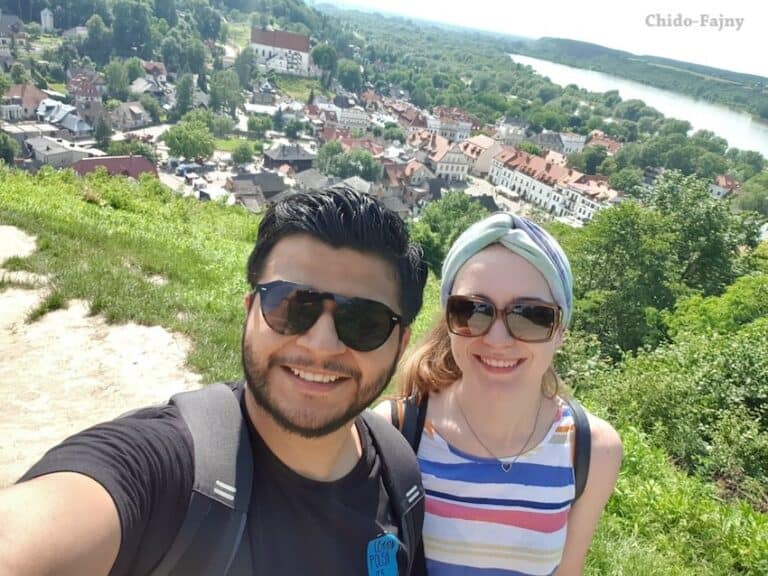Did you ever try to say a word in a foreign language but you didn’t know the exact translation? Did you ever try to say a word that you learned in some language but you couldn’t find it in your native one? Weird, isn’t it?
Honestly speaking, there have been a few times when I learned new words in English from my friends, and then when I wanted to say the same thing in Spanish I needed to explain for two minutes what I was trying to say… Sometimes I think that I keep forgetting my native language, which is not good, because when I come back to Mexico I don’t want to be like a Gringo there (obviously my face is more Mexican than anything so I will not have that problem).
The First Time I Discovered a Unique Word in Polish
Coming back to my initial questions, I don’t like that feeling when I can’t find the right word to describe a situation in Spanish or in Polish. During my first days in Poland, when I was meeting my first Polish friends there was always vodka, any excuse was good enough to drink a few shots. During my first shots my Polish friend asked me: “David, do you want popita?”, and I was like: “Sorry, what..?”. He replied: “yeah popita, you know – something to drink after your shot, like a glass of juice or soda. How do you say it in Mexico?”. I was thinking for a few minutes and I realized there is no such word in Spanish language. It was the first time that I discovered a unique word in Polish that didn’t exists in my native language.

After a few years of living in Poland, my Polish is improving (thanks god!), and I’m learning new words every day. But so far, I came up with a few Polish words that seems that are untranslatable to Spanish! But also, I noticed that there are a few words in Spanish that don’t have an equivalent in Polish! Crazy, isn’t it?.
That’s why I wanted to share in my post a list of words in Polish that don’t exist in Spanish and viceversa, after reading this post your brain will explode and you will be thinking: “My god, what kind of sorcery is this?”. So let’s start amigos! First, I will be mentioning the words that only exist in Polish and then I will continue with the Spanish ones. If you prefer to watch a video instead of reading about these words, don’t worry. You will find the video I made if you keep scrolling down the post.
— In this post I didn’t include any food or dishes, mainly because most of those words are related to cultures and traditions and therefore are not possible to translate. —
Polish Words That Don’t Exist in Spanish
1. Popita
Let’s start with the first word I learned that didn’t have translation into Spanish. This Polish word is popita, the best way to describe is: “The glass of juice, soda or beverage that you will drink after drinking a shot of alcohol”. Many people, specially the young ones, use this word in each party they attend. It is a super easy and useful word to learn! If you are coming to Poland and you like to party a little bit you have to learn it!
2. Kamienica
If you are looking for a flat in Warsaw or in Poland you will hear this word a lot! The word is kamienica, you might be thinking that this word can be replaced with the word building and this is not entirely wrong. However, in Poland the word kamienica has a really specific meaning, a good way to describe it is: “a type of building which has to be built from stone or bricks, it is old, the floors are quite high and they don’t have windows on one side”. Unfortunately those type of buildings are not built anymore (or not that often) in Poland, but they are an important element on the Polish culture.
3. Kombinować
If you just read the word fast, you will be probably thinking that this is the translation for ‘to combine’ in English, and you are not even close. Many times we have heard in movies: “Do what you have to do, no matter what, I want you to do it”. This is exactly what the word kombinować means, the proper meaning of this word is: “to achieve something no matter what it takes, even if it’s illegal”. An interesting word, probably Hollywood should use it more!
4. Kilkanaście/kilkadziesiąt
This is one of my favorites, as you know Polish language has some crazy rules that are not easy to understand for many of us. The word kilkanaście is the perfect example of it, the meaning of this word is “any number between 12 and 20”. Yes, you read it right, if you say this word, Polish people will immediately know what you are talking about. This is the same case for the word kilkadziesiąt, which means “any number between 20 and 99”. Quite easy and weird at the same time.
5. Nieszczelny
This word can be used in many situations and contexts, a similar word in English might be leaky, but is not always the case. The best way to describe this word is: “something that can’t be closed fully or present a leak”. This word can be used in many situations, for example: if your window doesn’t close correctly you can say: okno jest nieszczelne. If a gas container has a leak and all the gas is going out, we use the word nieszczelny to describe this situation. A really interesting and useful word.
6. Ogarniać
Finally, the master word of Polish language, this word is has tons of meanings and can describe many situations. We can define the word ogarniać as: “to understand, to be aware, to be on top of things”, but it can also mean to clean up or take a hold of yourself. It’s quite difficult for me to understand this word, especially because it doesn’t have just one meaning! Polish language is crazy!
Spanish Words That Don’t Exist in Polish
1. Te Quiero
If you know a little bit of Spanish and Polish you will be thinking now, of course there is a Polish word for this: “Kocham cię”, and you are not that wrong. In essence the word “Te quiero” is similar to “I love you” in English or “Kocham cię” in Polish. But in Spanish we have like two levels for “I love you”, these are: Te amo and te quiero. But, what is the difference between them? Well, the word te quiero is like less valuable in terms of love. You can say this word to your colleagues, some friends, etc. And the word te amo is like the TOP word you can say to someone you care about, for example: your mom, wife, girlfriend, etc.
Quite strange? Yes, but it is really useful! Specially if you have a girlfriend/boyfriend and you are not ready yet to say ‘I love you’, well you can use te quiero in Spanish.
2. Desvelarse
If you like to party in the middle of the week and the next day you have to work, well probably you will be using this word quite a lot! The meaning of desvelarse is: “when you went to sleep really late, and you slept not that much”. Mostly all the people had experienced this, and it’s great to describe this situation perfectly!
3. Friolero/Friolento
If you are living in Poland and you come from a warm country just like me, you might know that during winter it is impossible for many of us to enjoy the cold weather! When the winter is almost over, we have temperatures of 10 celsius degrees and you start seeing Polish people wearing only shorts or t-shirts! But for latinos, this might be different, most of us are frioleros or friolentos. But, what does this mean? The meaning of friolero/friolento is: “someone who is very sensitive to the cold”. An ideal word for many of us who are living in Poland!!
4. Sobremesa
How many times after you have dinner or lunch you just stay at the table and keep talking with your family and friends? Well, let me tell you that for that situation we have a unique word in Spanish which is sobremesa. You can define it as “Post-meal period in which you continue to sit around the table.” This situation is really common to experience, normally during the sobremesa you have a cup of coffee or tea and you just keep talking. An ideal time to tell a few gossips.
Polish and Spanish Words that Don’t Exist in English
When I was doing my research for this article I came up with two words that exist in Polish and Spanish but not in English. My surprise was that those words are commonly used in both languages but there are no equivalent words in English.
1. Smacznego/Provecho
When we are at the office or at school and we see that one of our friends is having lunch, we normally say: “Enjoy your meal” or “Bon Appétit”. There is not a simple word to say that in English! In Polish we say smacznego and in Spanish provecho. It’s really curious why no one thought about creating a word for this in English language.
2. Przedwczoraj/Anteayer
The definition in English for the words przedwczoraj (Polish) or Anteayer/Antier (Spanish) is: “The day before yesterday”. In English language there is no word for this, my favorite word for this situation is antier: simple, easy and fast to say.
Well guys, now you know a few unique words in Spanish and Polish, and of course if you know any other word that I could add to this list please leave your comments below! It’s always great to learn something new!







15 Comments
Funny. Kombinować is only thing you can do in Poland ;)
haha xD
For friolero/ friolento you can use polish: zmarzluch or zmarzlak or zmarźlak or zmarźluch :D
Thanks! Yes, I will update my post soon with this word!
Ciekawy artykuł.
Dodam jeszcze o kombinowaniu, że to nie wcale jest za wszelką cenę, ale może być jak najbardziej nielegalnie, wszystko zależy od kontekstu i od osoby. Słowo kombinować jak najbardziej połączone jest ze słowami “kombinacja” “combine”- łączyć, układać, składać, koordynować, tworzyć kombinację. W skrócie szukać rozwiązania poprzez przypadkowe lub świadome połączenie czegoś z czymś i to najczęściej w kreatywny, niecodzienny sposób. Może to być połączenie jakiś 2 idei z czego powstaje jakiś efekt. Wynależć, odkryć, wymyśleć, ale też przywłaszczyć sobie, obmyslać wrogi plan.
Np: Jak tam twój projekt na jutrzejszy wykład?
-Nie mam nic jeszcze, ale coś wykombinuję.
-Co ty tam znowu kombinujesz? (w znaczeniu co nielegalnego masz na mysli)
-Ci Polacy to nieźle wykombinowali z tą walką podziemną.
A potem jeszcze wariacja PRZEKOMBINOWANY tzn że coś jest bardzo skompilowane, tak bardzo że może się nie udać i że wygląda na sztuczne, np
– Ta ostatnia charakteryzacja Wiedźmina jest nieźle przekombinowana.
Dziękuję bardzo za wztłumaczenie i przytoczyć przykłady. Na prawda wspaniały, dzięki.